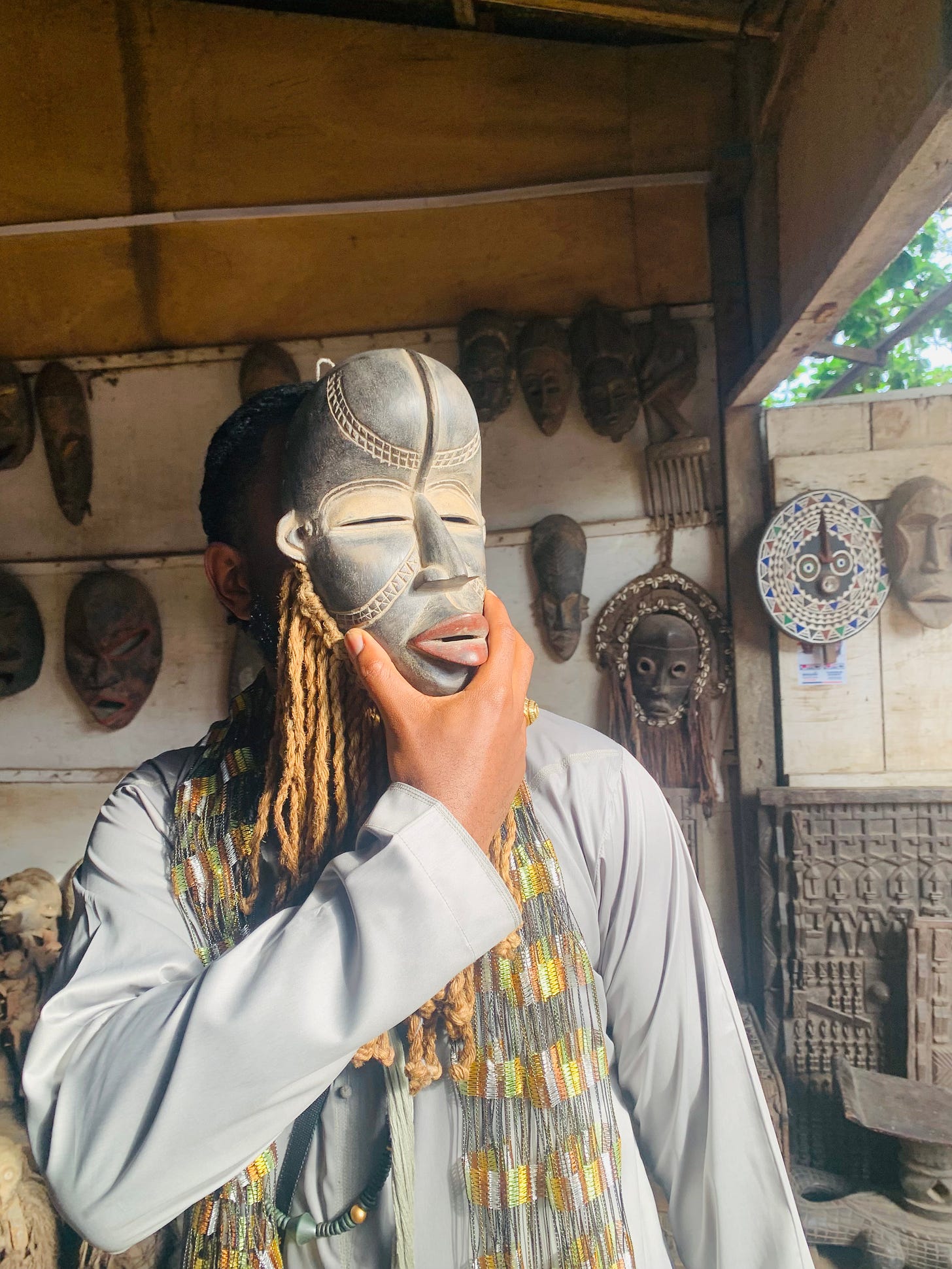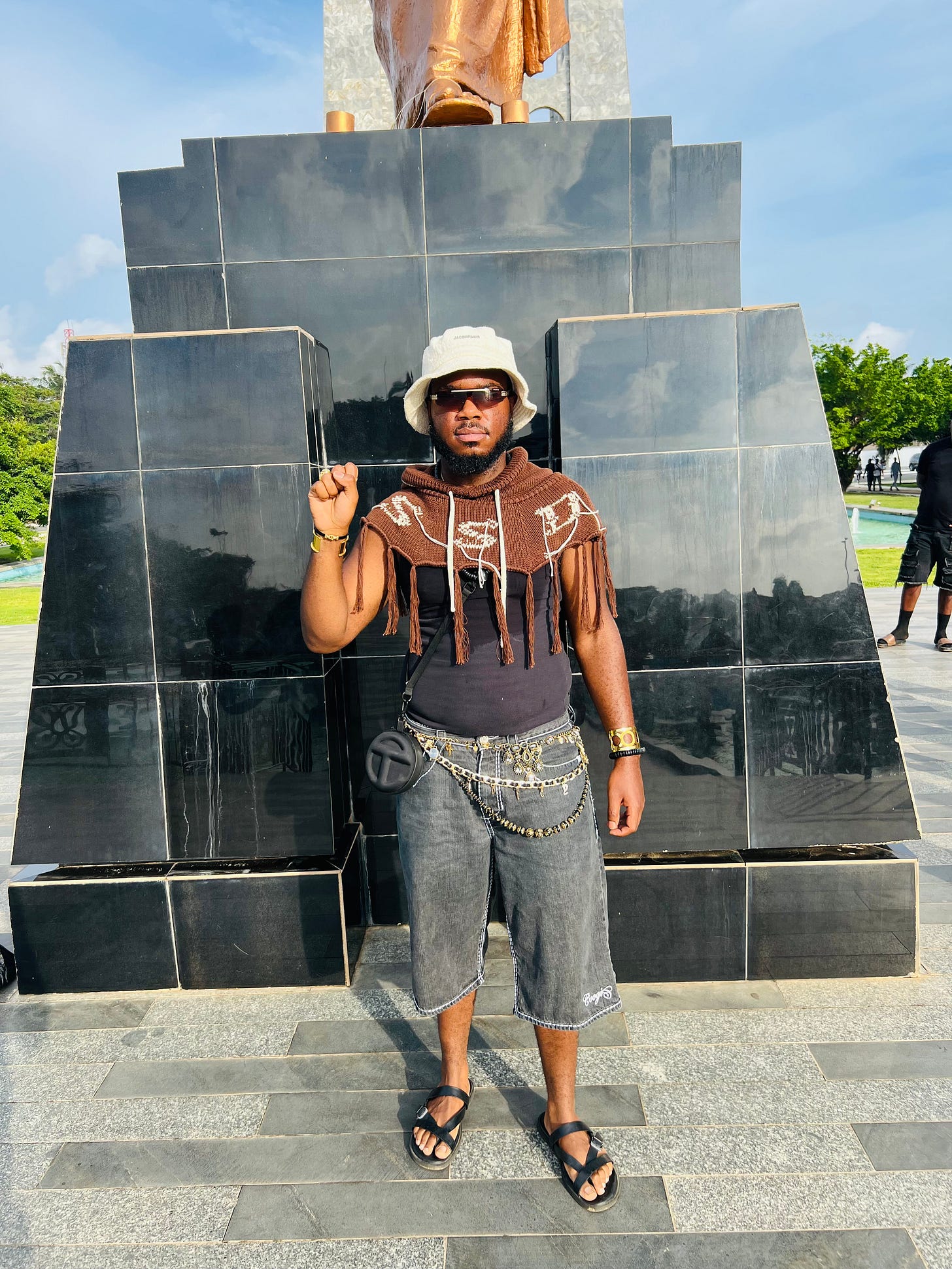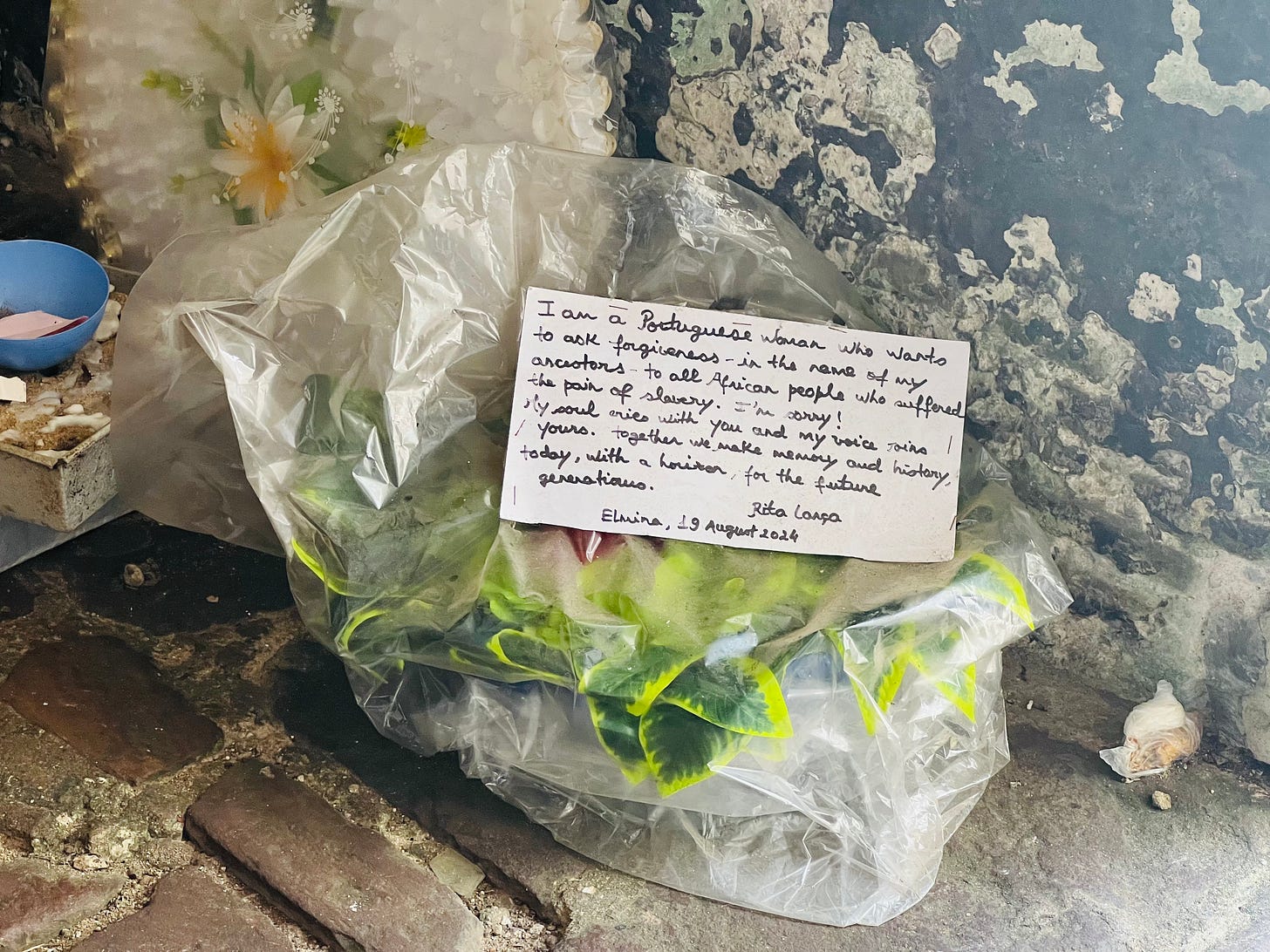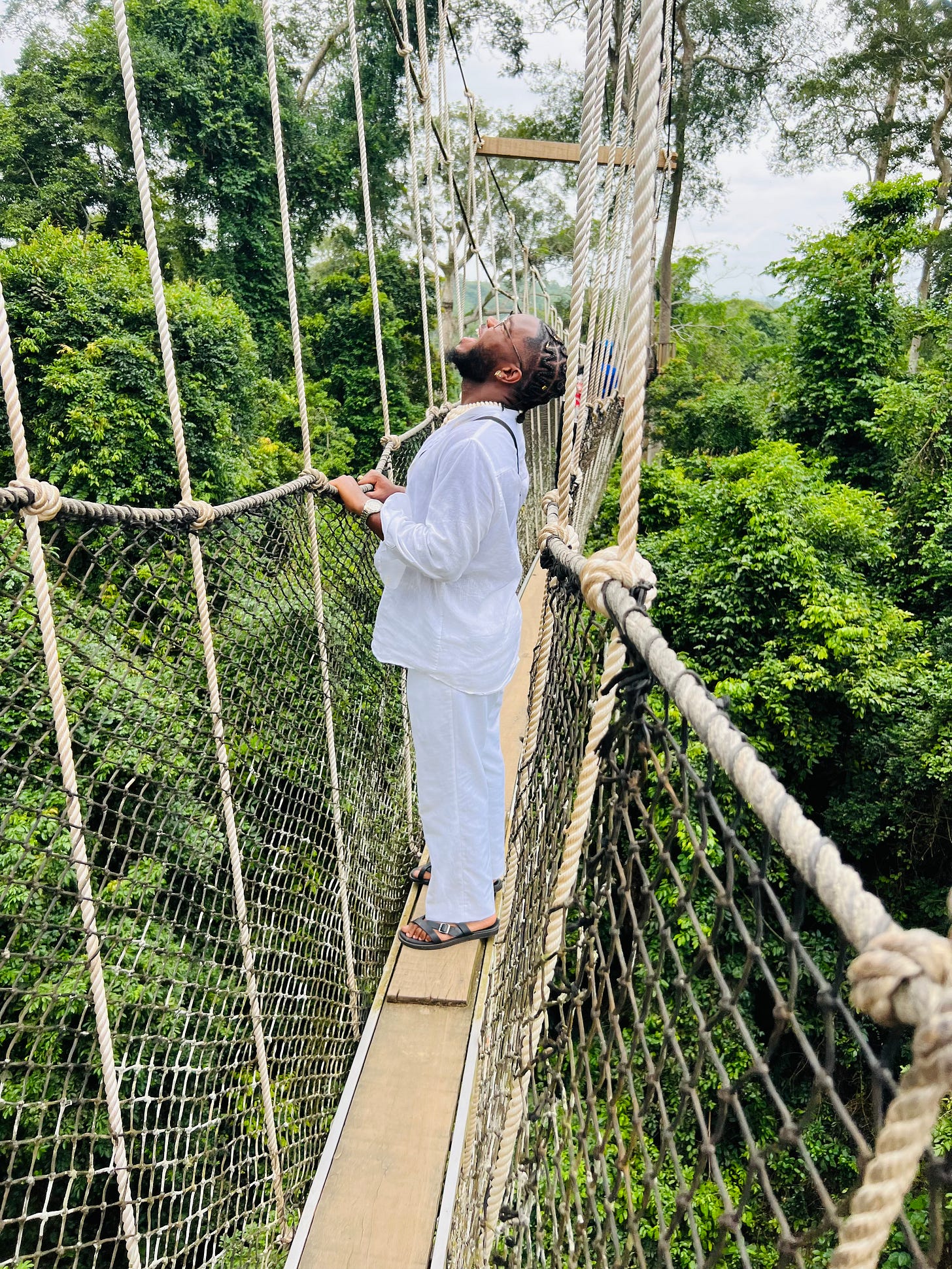Black Boy Joy: The Freedom I Found in Ghana
From fear in America to healing in Ghana—how I found safety, love, and ancestral power abroad.
The Tears I Didn’t Understand
Tears fell down my face as I de-boarded the plane. I didn’t know why.
Was it my ancestors speaking to me?
Or was it the feeling of finally being a Black man free of judgment, free of the constant, crushing weight of racism?
After 20 hours of travel, I had landed at Kotoka International Airport. Burna Boy blasted through my Sony headphones as I stepped foot on Ghanaian soil. And despite the jet lag, despite the humidity, I felt one thing I had never truly felt before—home.
America Taught Me Fear
Just a week earlier, I wasn’t sure I’d even make it.
"Pull over!" a Brazoria County sheriff barked through his megaphone.
I was stopped for a minor traffic violation, but in America, nothing is minor when you’re Black.
Am I about to become another hashtag? Will my parents bury me before I bury them?
These were the questions racing through my mind as the cop approached.
I grew up in suburban Texas—a sea of red, white crosses, and confederate flags. A place where I was always too Black to blend in, yet expected to conform. From my earliest memories, fear followed me. It wore the faces of teachers who didn’t believe I belonged in advanced classes. It stood at polling places and football games. It paraded around with the Klan in my own hometown.
The Checkpoint That Changed Everything
And even as I boarded that flight to Ghana, I carried that fear with me.
I didn’t realize how deep it ran until I encountered a police checkpoint on a dusty road outside Accra. My heart tensed. Muscles locked. My breath shortened.
But the officer just waved us along.
Later I learned these checkpoints were for community protection—not surveillance. Not a hunt. Not a trap.
And that’s when I felt it.
The veil lifting.
A Smile That Said “You’re Safe Here”
Walking through customs, I locked eyes with every beautiful Black face in sight. Men in kente. Women with head wraps as tall as their pride. And then I saw him—a security guard. Something in his gaze steadied mine. I nodded. He smiled. It wasn’t just recognition. It was reverence.
This was it. I was safe. I was home.
In the land of the peaceful kings—Hotep Negus’—I had finally found my kingdom.
Blackness Is Not One Size Fits All
Before coming to Ghana, I assumed Blackness was universal. I expected to find a mirror of the Black American experience. But I was quickly humbled.
While many Africans welcomed me with open arms, some couldn’t fully understand my pain. Why was I so pro-Black? Why did I call myself a Black American?
“Brotha, you are African—we all are,” one man said.
Yes, that’s true.
But it also misses something.
The Middle Passage wasn’t just a route—it was a rupture.
Chattel slavery, branding, rape, Jim Crow, Reconstruction, redlining, mass incarceration—these are not abstract concepts. They are my culture’s inheritance. And while I am African by blood, I am Black by experience.
Black culture is not a monolith—it is a mosaic.
My identity was forged in bondage and brilliance. And in Ghana, for the first time, I didn’t have to explain that to anyone. I could just be.
In Ghana, I Felt Seen
On the streets of Accra, I felt seen. Whole. Beautiful. Revered.
I danced to Afrobeats and Amapiano in open-air bars. I laughed with market vendors. I shared food and stories with strangers who felt like family. Slowly, my hypervigilance melted away. I stopped checking over my shoulder. I stopped bracing for insult.
I began to breathe.
My Clothes Became My Crown
Fashion became an act of liberation.
I wore my Sankofa pendant proudly, draped in mudcloth and crochet tops that revealed my chest. I didn’t just wear clothes—I wore pride. And the world responded.
Everywhere I went, I was complimented, desired, admired.
My self-esteem—long buried under stereotypes and survival—began to rise.
The little Black boy inside me began to heal.
My Ancestors Walked With Me
Spiritually, Ghana cracked me wide open.
At Elmina Castle, I heard the echoes of ancestors who never had the chance to return. In Tamale, sitting with a traditional sightseer, I felt their guidance pulsing through my chest. And on Labadi Beach, I felt the Atlantic wash over me—not with grief, but with cleansing.
I had always been spiritual. But in Ghana, it wasn’t abstract. It was felt.
I walked with protection, wisdom, and divine alignment.
I was no longer just surviving—I was walking in purpose.
A Hard Lesson at the Airport
But the return wasn’t without its lessons.
The moment I opened my mouth, my accent gave me away. And with that came something new: extortion.
At Kotoka, I was hit with unnecessary fees—$20 for a yellow fever vaccine check, another $100 for my drone. I was reminded quickly that while I had escaped American racism, I hadn’t escaped exploitation. The system was different, but not always gentler.
It made me hesitant. Cautious. And at times, disillusioned. But it didn’t undo the freedom I felt.
From Minority to Majority
In Ghana, I was no longer a minority. I was the norm. I was embraced.
Not everyone saw me as “just another tourist.” Many saw me as a brother returning. From handshakes to “my brotha” greetings, I felt community in every corner.
And most importantly—I felt joy.
Black boy joy.
Not performative, not defensive, not survival joy.
But real, vulnerable, whole-body joy.
I was seen. Heard. Desired. Cherished. Loved.
For the first time in my life, I was allowed to just be.
A Message to My Younger Self
As I walked back through Kotoka Airport for my departure, I whispered to 13-year-old Justin—the boy who knew only fear:
“Everything is fine now.
You are Black and beautiful.
You are smart.
You are kind.
You are important.”
And for the first time, he believed it.
If you’ve ever considered what freedom could look like beyond America—this is your sign. Drop a comment, share your story, or forward this to someone who needs to feel seen.







This was another beautiful piece. Thanks for sharing your experience, perspective and a window into your healing. This was inspiring and beautiful.